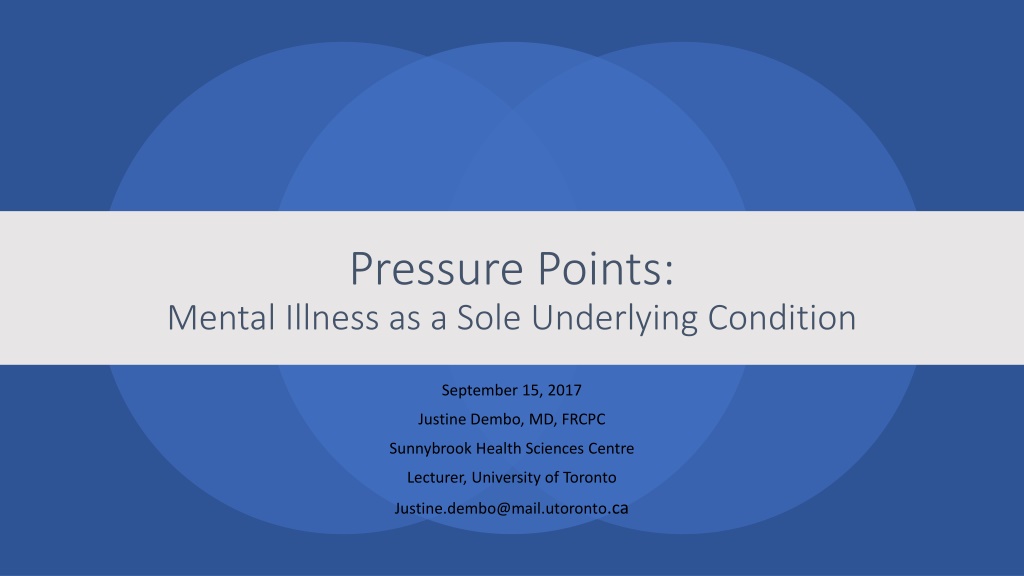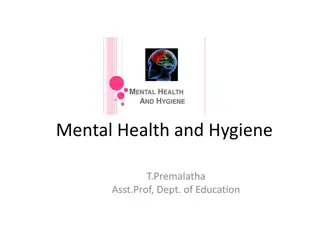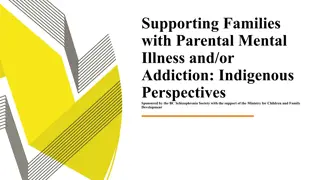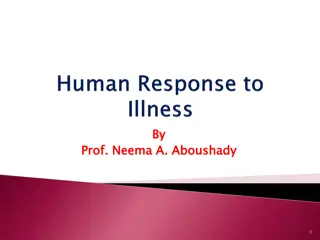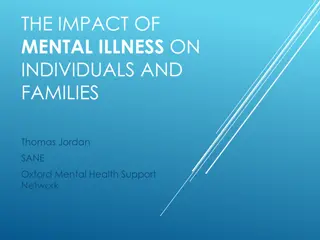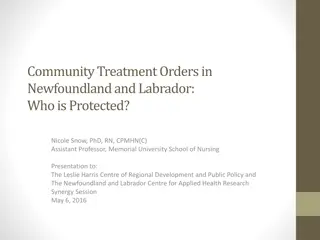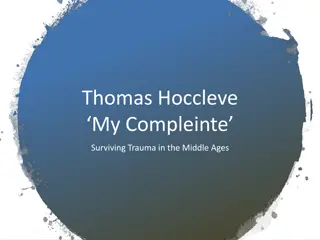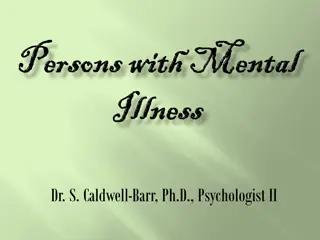Irremediability in Mental Illness
This article explores the concept of irremediability in severe mental illness, discussing the challenges in predicting outcomes, statistical data on various disorders, and the controversy surrounding assessing capacity for Medical Assistance in Dying (MAID) requests related to mental illness.
Download Presentation

Please find below an Image/Link to download the presentation.
The content on the website is provided AS IS for your information and personal use only. It may not be sold, licensed, or shared on other websites without obtaining consent from the author.If you encounter any issues during the download, it is possible that the publisher has removed the file from their server.
You are allowed to download the files provided on this website for personal or commercial use, subject to the condition that they are used lawfully. All files are the property of their respective owners.
The content on the website is provided AS IS for your information and personal use only. It may not be sold, licensed, or shared on other websites without obtaining consent from the author.
E N D
Presentation Transcript
Pressure Points: Mental Illness as a Sole Underlying Condition September 15, 2017 Justine Dembo, MD, FRCPC Sunnybrook Health Sciences Centre Lecturer, University of Toronto Justine.dembo@mail.utoronto.ca
Irremediability Controversy/Question: Is severe mental illness ever irremediable? Is severe mental illness ever irremediable? Problem: We cannot accurately predict the course of mental illness in each individual. In fact, many do recover, but a significant proportion do not. Statistics: Depression: overall, about 20% achieve full remission over a lifetime; about 40% sustained response but not remission; most who respond relapse. Borderline personality disorder: multiple lifetime suicide attempts, completion rate about 10%; ongoing dysphoria, relationship dysfunction, and anger even when behaviours reduce. Anorexia nervosa: 20% experience severe and chronic course despite treatment; high mortality rate; lifetime cognitive symptoms for most, even when behaviours remit. Schizophrenia harder to study because so many patients are lost to followup or discontinue treatment. Suicide rate 10-15%. Estimates range in studies, about 20-50% show good outcome but do not always define what that is. NOTE: all references are available in a separate document. Please feel free to request that from me.
Irremediability: Conclusion A significant number of individuals with severe mental illness remain highly symptomatic over time, including those who have received multiple evidence-based treatments. It is impossible to predict with certainty which patients will have irremediable illness, but given the data, we have to recognize that mental illness can indeed be irremediable.
Capacity: Controversy/Question: How can we be sure that those requesting MAID for sole mental illness truly are capable? Problem: There is no standardized way to assess capacity for MAID in such a complex group. However: This doesn t mean we should not try. Arguments against capacity: Suicidality is a core symptom of depression how do we differentiate between requests that are a symptom of the illness and requests that are rational? Cognitive distortions are often subtle or hidden and influence capacity. Acute distress affects the informed consent aspect of capacity the aspect of voluntariness. Arguments for capacity: As in any other illness, some individuals are capable and some are not. People with mental illness are assumed capable unless proven otherwise, and general consensus is that most are capable (the literature supports this even in hospitalized inpatients). Everyone has cognitive distortions but that does not stop us from assessing capacity in the terminally ill. Further, the cognitive distortions may be irremediable and part of the illness that underlies the MAID request. Acute distress exists in the terminally ill also, and again, this doesn t stop us.
Capacity: Conclusion Most individuals with mental illness are capable with respect to medical and end-of-life decision-making, and many are likely capable with respect to MAID requests. We must continue to improve upon our existing capacity assessment tools, in order to better account for the nuances in the complex case of MAID in mental illness. This does not mean denying MAID to an entire population.
Safeguards: Controversy/Question: Is it possible to create appropriate safeguards for MAID in mental illness? Problem: We have very few precedents, and there is debate over how stringent the safeguards should be, and what they should be. Main challenges: If we make the requirements overly stringent, this may constitute discrimination; if we make them overly permissive, we may have too many unnecessary or wrongful deaths. Each case is different. However: We are capable of creating our own criteria for safeguards, and building upon what has already been created elsewhere. Canada has its own guidelines for most illnesses and procedures why not this? Physicians are more likely to err on the side of excessive caution. Zero error rate is impossible, just as in the rest of medicine.
Safeguards: Conclusion We need to design safeguards that are stringent enough to prevent most avoidable deaths yet permissive enough to prevent excessive suffering among the living. There will be no perfect set of safeguards, just as in any other branch of medicine.
Thank you! Justine.dembo@mail.utoronto.ca
